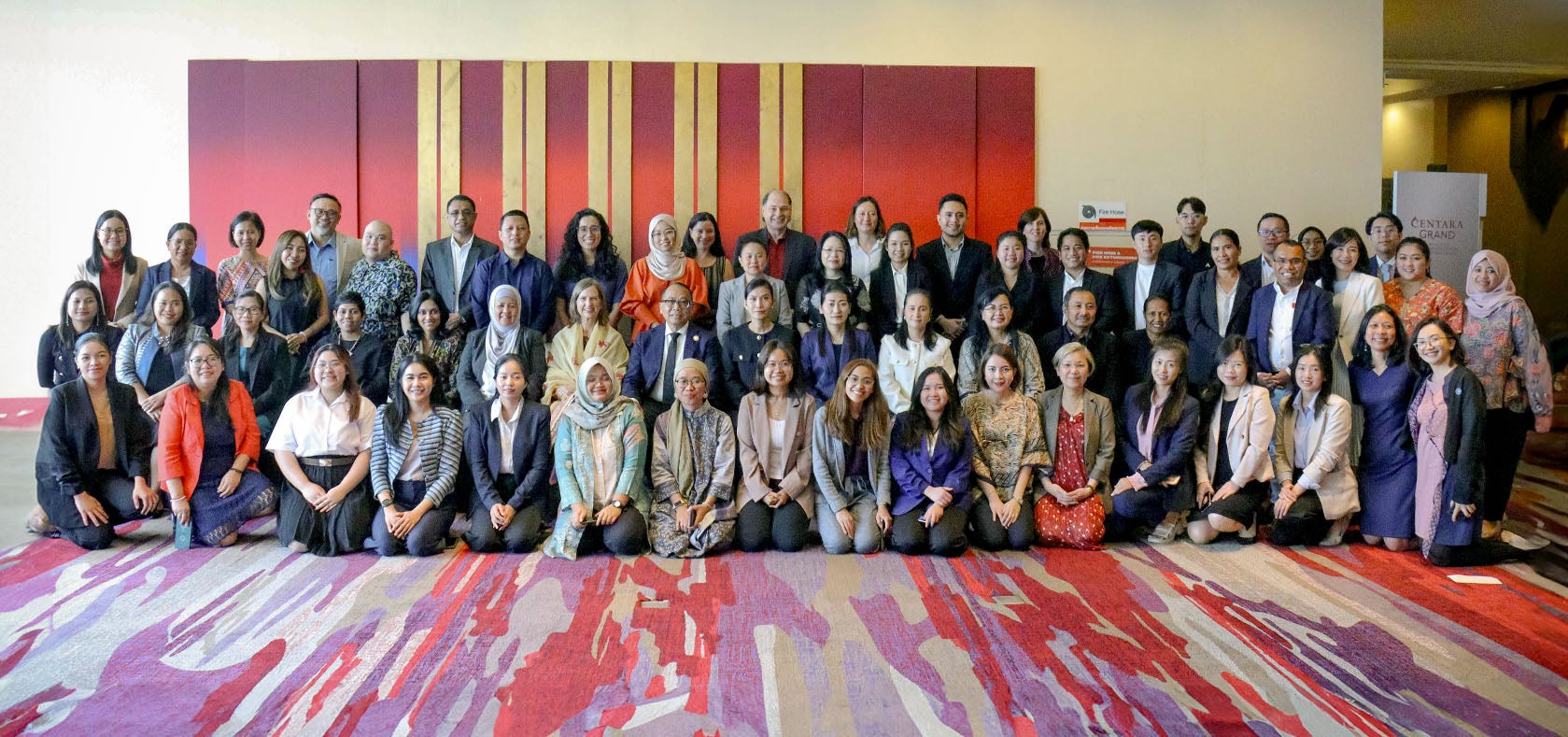South-East Asian officials study how their countries can realize region’s goals on women and security
Date:

Bangkok, Thailand — Government officials from seven ASEAN Member States, along with Timor-Leste, are taking part in a training on how to translate ASEAN’s women and peace goals into national policies.
More than 60 government officials from Cambodia, Indonesia, Lao People’s Democratic Republic, Malaysia, Philippines, Thailand, Viet Nam, as well as Timor-Leste are attending the National Action Plan Academy training in Bangkok, Thailand. The five-day training ends on 28 June 2024.
ASEAN adopted the first Regional Plan of Action on Women, Peace and Security (WPS) in 2022 and held a High-Level Summit on WPS in 2023. The plan promotes women’s participation and leadership in making policies to prevent social conflicts and sustain peace. In Southeast Asia, three countries – namely Indonesia, Philippines and Timor-Leste have adopted their respective National Action Plan (NAP) on WPS.
Mr. I Gusti Agung Wesaka Puja, Executive Director (ED) of ASEAN Institute for Peace and Reconciliation (ASEAN-IPR) highlighted that “Southeast Asia is making notable strides in advancing the Women, Peace, and Security (WPS) Agenda. However, advancing WPS requires more than regional commitment; there needs to be a bridge to translate global and regional commitments into national and even local actions.”
“In the recent global climate of increasing peace and security challenges, ASEAN has been a cornerstone for peace, bringing its Member States and dialogue partners to work together through multilateral cooperation,” said Sarah Ferguson, Regional Director a.i., UN Women Asia and the Pacific.
“The academy training offers a unique opportunity for ASEAN Member States to learn from global best practices and from one another. The participation of eight countries across the region today is testament of the demands to localize the women, peace and security agenda into diverse national and local contexts of South-East Asia.”
The workshop participants reviewed the Localisation Toolkit and Guidelines for the ASEAN Regional Plan of Action on Women, Peace and Security. They identified both challenges and opportunities to increase women’s participation and leadership, and shared good practices and lessons learned in developing national action plans. And they reaffirmed commitments to develop and implement such plans, taking into account growing security challenges such as climate risks and cybersecurity threats.
ASEAN and ASEAN-IPR organized the workshop in collaboration with UN Women. The Governments of Canada, Republic of Korea and United Kingdom provided funding through the project, Empowering Women for Sustainable Peace: Preventing Violence and Promoting Social Cohesion in ASEAN. The project puts in action recommendations in the ASEAN Regional Study on Women, Peace and Security, as well as United Nations Security Council (UNSC)resolutions that made Women, Peace and Security a global agenda.
For more updates, follow #WPSASEAN and #ASEANRPAWPS on social media.
For more information:
- Kartika Budhi Wijayanti, Project Management Officer, ASEAN-IPR
Email: [ Click to reveal ]; [ Click to reveal ]
- Yoomi Jun, Communications and Advocacy Analyst, UN Women Indonesia
Email: [ Click to reveal ], [ Click to reveal ]
About ASEAN-IPR
ASEAN Institute for Peace and Reconciliation (ASEAN-IPR) is ASEAN’s think tank mandated to be ASEAN’s research institution on peace, conflict management, conflict resolution and reconciliation. The Institute has five (5) functions: research, capacity building, pooling of expertise in support of ASEAN bodies, networking and dissemination of information.
About UN Women
UN Women is the United Nations agency dedicated to gender equality and the empowerment of women.